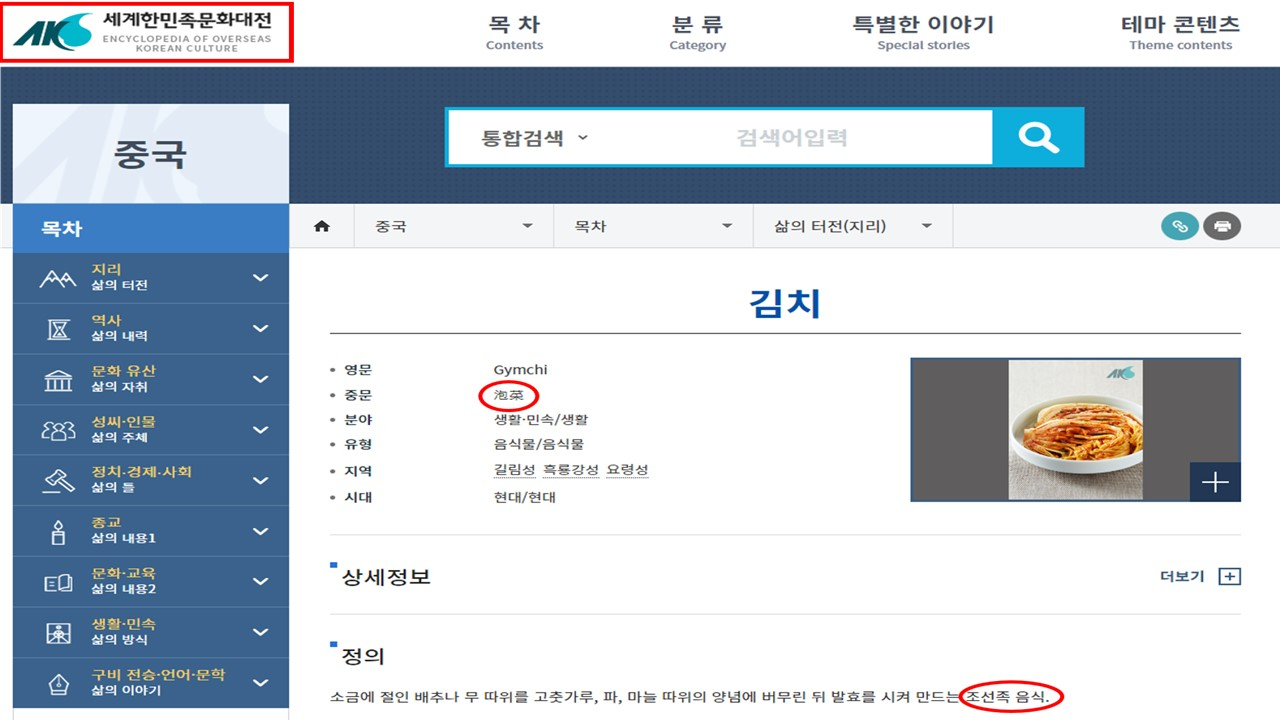Lawmaker slams research institution under Education Ministry for cultural distortion
By Park Jun-heePublished : Oct. 13, 2023 - 16:02

A South Korean lawmaker on Friday criticized a government-funded research and development institution under the Ministry of Education for distorting explanations of Korean history and culture on its official website, demanding immediate correction.
A report released by Rep. Chung Kyung-hee of the ruling party, who is also a member of the National Assembly’s education committee, showed that the Academy of Korean Studies has been labeling kimchi as “pao cai” -- a pickled vegetable dish eaten in China -- in its Encyclopedia of World Ethnic Cultures section, referring to the traditional Korean side dish as being of Chinese origin.
The Ministry of Culture, Sports and Tourism in July 2021 amended guidelines for foreign language translation and notation for public sector translation, stating that kimchi should be written as “xin qi” when referring to it in Chinese, after China began standardizing "pao chai" in 2019, but changes have yet to be made.
The online description of kimchi is also written as a “Joseon-jok food made by mixing a salty mix of fermented vegetables such as cabbage or radish with seasoning,” referring to the ethnic Korean Chinese community instead of describing it as a fermented food enjoyed by South Koreans.
The explanation for "seolbim," traditional Korean attire bought or explicitly made for the Lunar New Year, is also detailed as “clothes worn by Joseon-jok” during the holiday.
In addition, the website introduces Myeongdongchon in North Gando, Manchuria, as the “hometown of a Korean Chinese patriotic poet Yun Dong-ju,” not as a historical figure who is one of the most revered Korean poets in modern history.
Rep. Chung noted that the research institution, which operates various projects with a budget of 30 billion won ($22.2 million) to introduce Korea, is introducing Korean culture using China’s distortion of Korean history, raising concerns it is sending out the wrong information to the public and international community.
“The Korean studies institution operated by taxpayers’ money is aligning itself with China’s cultural distortion. (The institution) must immediately correct (the errors) and prepare measures to prevent such from reoccurring,” Rep. Chung was quoted as saying in a press release.




















